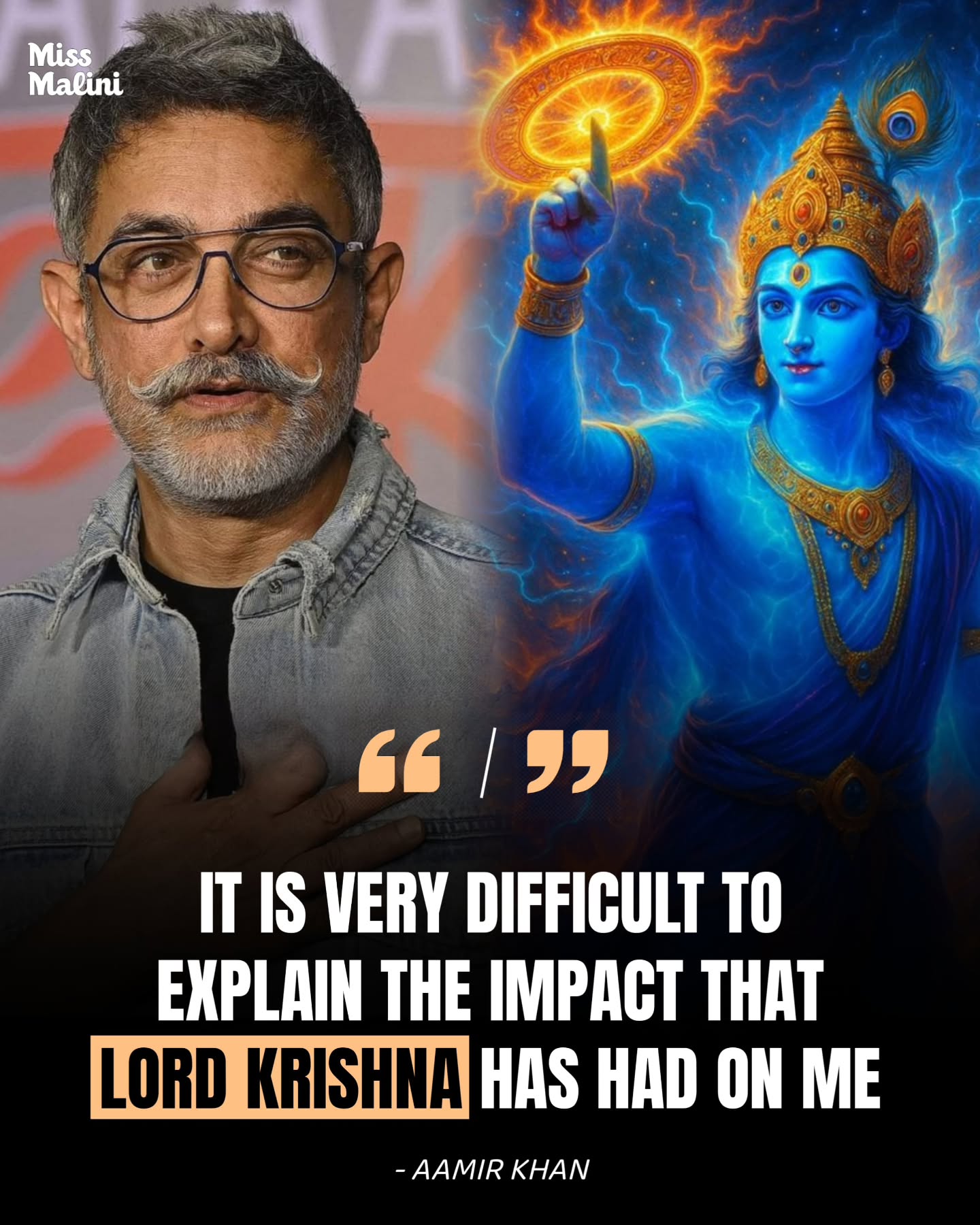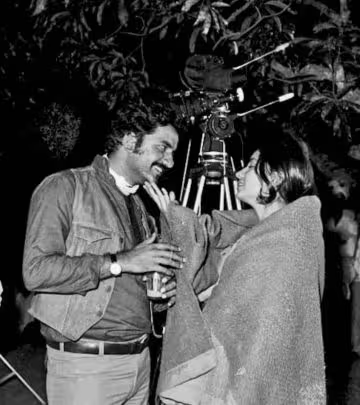Aamir Khan’s Divine Inspiration
Bollywood star reveals how Krishna’s teachings have shaped his life and film ambitions 23!

Image: Instagram
Bollywood’s celebrated actor Aamir Khan has recently opened up about the deep and multifaceted influence of Lord Krishna on his life and career. In a post shared on Instagram, Khan confessed that the profound spiritual wisdom of Krishna—as encapsulated in the Bhagavad Gita—has left a lasting impact on him. His admiration goes so far that he has expressed a desire to bring Krishna’s character to life on the big screen in a film adaptation of the Mahabharata.
A Profound Connection
Khan’s revelation comes at a time when mythological themes and ancient Indian epics are once again capturing the imagination of both filmmakers and audiences alike. The actor, who is known for his thoughtful and socially relevant roles, acknowledged that Krishna’s teachings are more than just religious dicta; they represent a complex philosophy that combines ethics, spirituality, and the art of living. In his own words, the influence of Krishna is
“profound and difficult to articulate,” hinting at a personal sentiment that stretches far beyond conventional interpretations.
For Khan, the Bhagavad Gita is not merely an ancient text but a living document that continues to provide guidance in the modern world. His aspiration to portray Krishna on screen is a bold statement of his commitment to exploring characters with deep cultural and spiritual roots. This ambition resonates in a time when the confluence of tradition and modernity is at the forefront of Indian cinematic discourse.
Film Aspirations And The Mahabharata Vision
The idea of reimagining the Mahabharata for a modern audience is both challenging and exciting. Khan’s interest in this subject promises a fresh perspective on a story that has inspired countless works of art over the centuries. His intended portrayal of Krishna is expected to emphasize the deity’s multifaceted personality: the divine strategist, the playful mentor, and the eternal guide whose words have shaped moral philosophy for generations.
Indian cinema has a long history of mythological films, yet not many have the personal and introspective connection that Khan describes. Within the corridors of Bollywood, where artistic experimentation often meets mainstream expectations, this news stands out as a call to embrace the spiritual and philosophical dimensions of India’s cultural heritage. As debates swirl around the reinterpretation of epic sagas, Khan’s approach could set new benchmarks for storytelling that intertwines faith, philosophy, and cinematic expression.
Cultural Resonance And Modern Relevance
It is not just the cinematic appeal of ancient deities that excites fans and critics alike; there is also a renewed interest in the relevance of these teachings in today’s digital and fast-paced world. The figure of Krishna, with his timeless advice and enigmatic charm, continues to serve as a symbol of balance, duty, and the complexities of human relationships. For Khan, Krishna is a beacon whose light transcends the realms of religion and art. In a manner that harmonizes with today’s pop culture narrative, his comments have sparked conversations online, gathering attention from news outlets and respected voices such as MissMalini—a seasoned chronicler of Bollywood and celebrity culture.
MissMalini, whose own Instagram feed often features the latest in pop culture and digital trends, has been quick to spotlight this development. Known for her nuanced reporting and sharp insights into Bollywood affairs, she has long documented shifts in narrative styles in Indian cinema. Her coverage not only highlights the transformation within the industry but also places personal statements like Khan’s in a broader context, paving the way for an understanding of how age-old epics can be reinterpreted for today’s audiences.
Bridging Past And Future
The prospect of an Aamir Khan film focusing on Krishna is significant as it bridges centuries-old narratives with modern filmmaking sensibilities. Provincial audiences, both in India and abroad, may soon witness a re-telling that is steeped in tradition yet presented with the contemporary finesse that Khan is known for. The actor’s proved record of blending activism with art suggests that the film, if it materializes, will be far more than a mythological spectacle—it could offer poignant insights into the dilemmas and decisions that define human existence.
While the project remains in its early conceptual stages, industry insiders have noted that such an undertaking is bound to generate extensive discussion among scholars, cinephiles, and spiritual communities. The inherent challenge of translating the layered complexities of the Bhagavad Gita into a cinematic format is immense, but Khan’s dedication and his penchant for deep research might just make the impossible possible.
In a media landscape that is increasingly replete with superficial buzz, this move by Aamir Khan stands out as a sincere effort to reconnect with cultural roots. As audiences await further details on the prospective film, the conversation has already begun to evolve around the role of classical wisdom in contemporary society and the power of cinema to reframe historical narratives for a new generation.
Khan’s openness about his reverence for Krishna has thus not only reintroduced audiences to the rich tapestry of Indian spirituality but also hinted at the potential revival of mythological filmmaking in Bollywood. Through this blend of personal passion and professional ambition, the actor appears poised to carve a niche that honors tradition while boldly experimenting with new storytelling techniques.
This development is a reminder of how art, philosophy, and popular culture can converge to create narratives that are both timeless and strikingly modern. As the buzz around this vision intensifies, the film could very well become a benchmark for how ancient epics can inspire and transform the contemporary cinematic landscape.
Read full bio of Glendon Moss























